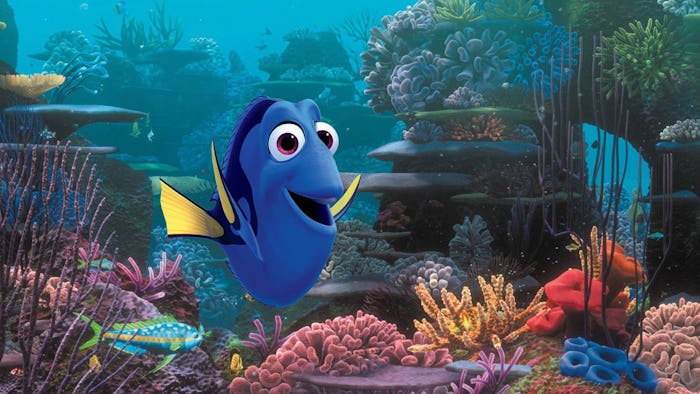
Is Short Term Memory Loss A Real Thing? 'Finding Dory' Gets It Right
Chances are your little one has already dragged you to see Finding Dory or, alternatively, you've dragged them. (And even if you don't have a little one, you've probably seen it anyway because, come on, it's Pixar!) The sequel to Finding Nemo easily broke box office records on its opening weekend. It won hearts and good reviews particularly for its portrayals of characters with disabilities, including the titular Dory, a blue tang fish who suffers from what she refers to as short term memory loss. But is the short term memory loss in Finding Dory a real thing?
Well, someone at Pixar definitely did his or her research, because Dory realistically demonstrates many of the symptoms of anterograde amnesia. When Finding Nemo first introduced the world to Dory, winningly voiced by Ellen Degeneres, back in 2003, many psychologists and researchers praised the movie for being one of the few to accurately portray amnesia. Although Dory knows who she is, she has difficulty forming or encoding new memories. She can temporarily remember things if she repeats them, but when she gets agitated or distracted, she loses them. She's particularly bad with directions and with names. And there's no magical "cure." It's just something she has to live with.
One of the best things about Finding Dory is that it delves into what was often a comedic device in Finding Nemo to show just how scary and disorienting Dory's condition can be. But at the same time, it shows how living with her disability has made Dory resourceful in different ways, ways that other characters ultimately learn to admire and even emulate. All of the characters with disabilities in the movie, ranging from a nearsighted whale shark to a beluga whale whose echolocation is "broken," end up learning not to apologize for the things that make them different. And it's a message that's proving powerful for audiences, both for kids with disabilities and kids without.
I suppose we shouldn't be surprised that Pixar gave us a realistic portrayal of what can happen inside the brain. After all, this is the studio that made Inside Out, a whole movie that somehow accurately and entertainingly portrayed the emotions inside a little girl's head.
So yes, Dory's memory loss is based on a real thing, and it is given the weight it deserves, making the movie entirely worth seeing. And if that's not enough incentive, the movie gives you little Dory, and she looks like this:
So you definitely have to see it now.